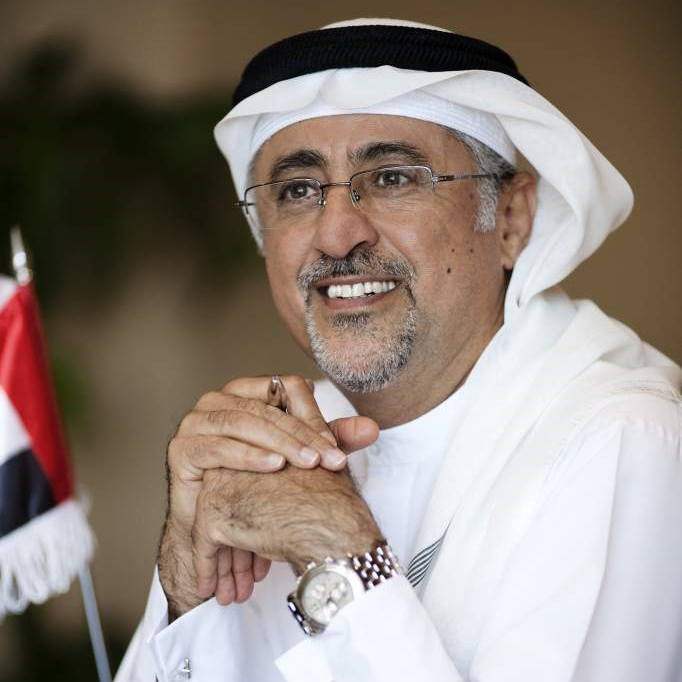OUR KEYNOTE SPEAKERS

Eesa Mohammed Bastaki, Ph.D.
Dr. Eesa Mohammed Bastaki is the President of the University of Dubai. Dr. Bastaki is the recipient of the highest award in the UAE, the “Emirates Excellence Award in Sciences, Literature and Arts”, in the field of Sciences. Dr. Bastaki’s extensive experience in education, leadership, technology and communications will prove a major asset in leading the university into its next progressive phase, which besides the building of a new campus and the addition of several programs, such as a Master of Laws degree and Doctorate degrees in Business Administration. Previously, Dr. Bastaki worked as a professor at United Arab Emirates University (UAEU) specializing in Communications Engineering. He also held positions as: CEO of ICT Fund; Director of Education, Training and Research and Development for Dubai Silicon Oasis (DSO); Consultant and IT Project Manager for Al-Ain Municipality; Board member of KHDA’s UQAIB and was member of many academic boards. He is one of the founders of DSO and RIT-Dubai. He is Honorary Chair of IEEE, Chairman of Emirates Science Club, Board member of the Cultural and Scientific Association and was a Board member of Ankabut (UAE’s NREN) and many more. He is the Chair of “Drones for Good Award”, “Robotics & AI for Good Award” and “Emirates Energy Award”. He also judges the Dubai-initiated competition 10X. He is also the Vice Chairman of the Board of Trustees of Hamdan Bin Mohammed Innovation Award in Project Management. He has organized hundreds of events, conferences, forums and competitions. During his time at UAE University, DSO and ICT Fund, Dr. Bastaki chaired several technology and research boards, initiated technology incubation concepts and coined on R&BD terminology, where he brought forward the rich experience of enhancing the University of Dubai’s research drives and futuristic programs. His main goals are to enhance Research & Business Development to serve the industry and fulfill his drive towards his vision of “Made in UAE, Sold Globally”. Dr. Bastaki received his Bachelor’s and Master’s degrees from the University of California, San Diego and his PhD from University of California, Irvine, before returning to help improve the education and technology sectors in his homeland, the UAE. University of Dubai faculty, staff and students are gratified that a man of his accomplishments leads the University on its continuing path to provide the highest quality education in the region.

Prof. Moustafa Yousse,
Moustafa Youssef is a professor at the American University in Cairo, Egypt. He is the founder & director of the Wireless Research Center of Excellence, Egypt. His research interests include mobile wireless networks, mobile computing, location determination technologies, pervasive computing, and quantum computing. He is an Associate Editor for IEEE TMC and ACM TSAS, served as the Lead Guest Editor of the IEEE Computer Special Issue on Transformative Technologies and an Area Editor of ACM MC2R as well as on the organizing and technical committees of numerous prestigious conferences. He is the recipient of the 2003 University of Maryland Invention of the Year award, the 2010 TWAS-AAS-Microsoft Award for Young Scientists, the 2013 and 2014 COMESA Innovation Award, multiple Google Research Awards, among many others. He is also an IEEE and ACM Fellow.
Quantum Computing for Worldwide 6G and Beyond Cellular Positioning
Quantum computing provides a new way for approaching problem solving, enabling efficient solutions for problems that are hard on classical computers. With researchers around the world showing quantum supremacy, quantum computing is becoming a reality. In this talk, I will share both the opportunities and challenges that quantum computing has for location determination research. Specifically, I will present an example for the expected gain of using quantum algorithms by providing an efficient quantum implementation of the well-known RF fingerprinting algorithm and its performance on a real IBM Quantum Experience computer. The proposed quantum algorithm has a complexity that is exponentially better than its classical algorithm version, both in space and running time. Such exponential savings make quantum positioning algorithms a good candidate for meeting the requirements of the recent release of the third generation partnership project (3GPP), Release 17, which calls for sub-meter cellular positioning accuracy with reduced latency in calculation for both indoor and outdoor environments. I end the talk with a discussion on both software and hardware research challenges and opportunities that researchers can build on to explore this exciting new domain.

Dr. Giampaolo Bovenzi,
Giampaolo Bovenzi is an non-tenured Assistant Professor (RTD-a) at the Department of Electrical Engineering and Information Technology (DIETI) of the University of Napoli Federico II, since October 2023. He received his Ph.D. degree at the same University in June 2022 and he is a member of Traffic research group, headed by the Prof. Antonio Pescapè. Giampaolo's research interests focus on (anonymized and encrypted) traffic classification, network security (with focus on IoT), and blockchain. He has co-authored 24 papers in international journals and conference proceedings.
Toward Effective Network Intrusion Detection Systems: Incremental Learning with Few Attack Samples
The rapid expansion of Internet-connected devices and the increasing complexity of networked environments---driven by IoT, 5G, digital transformation of industries, edge and multi-cloud computing, and increasing remote work and BYOD policies---have heightened the vulnerability of systems to cyberattacks. Accordingly, managing network security is becoming increasingly challenging, especially given the frequent emergence of new threats and the scarcity of data for training network intrusion detection systems. This talk explores how advanced network intrusion detection systems (NIDS) can evolve to address these complexities by leveraging few-shot learning and (class) incremental learning approaches. We will discuss how these methods enable NIDS to adapt to dynamic threat scenarios, mitigating concept drift in cyber threats and the need for huge amount of data. Through these cutting-edge solutions, network security systems can become more resilient and responsive, even when faced with novel or sparse attack patterns.
